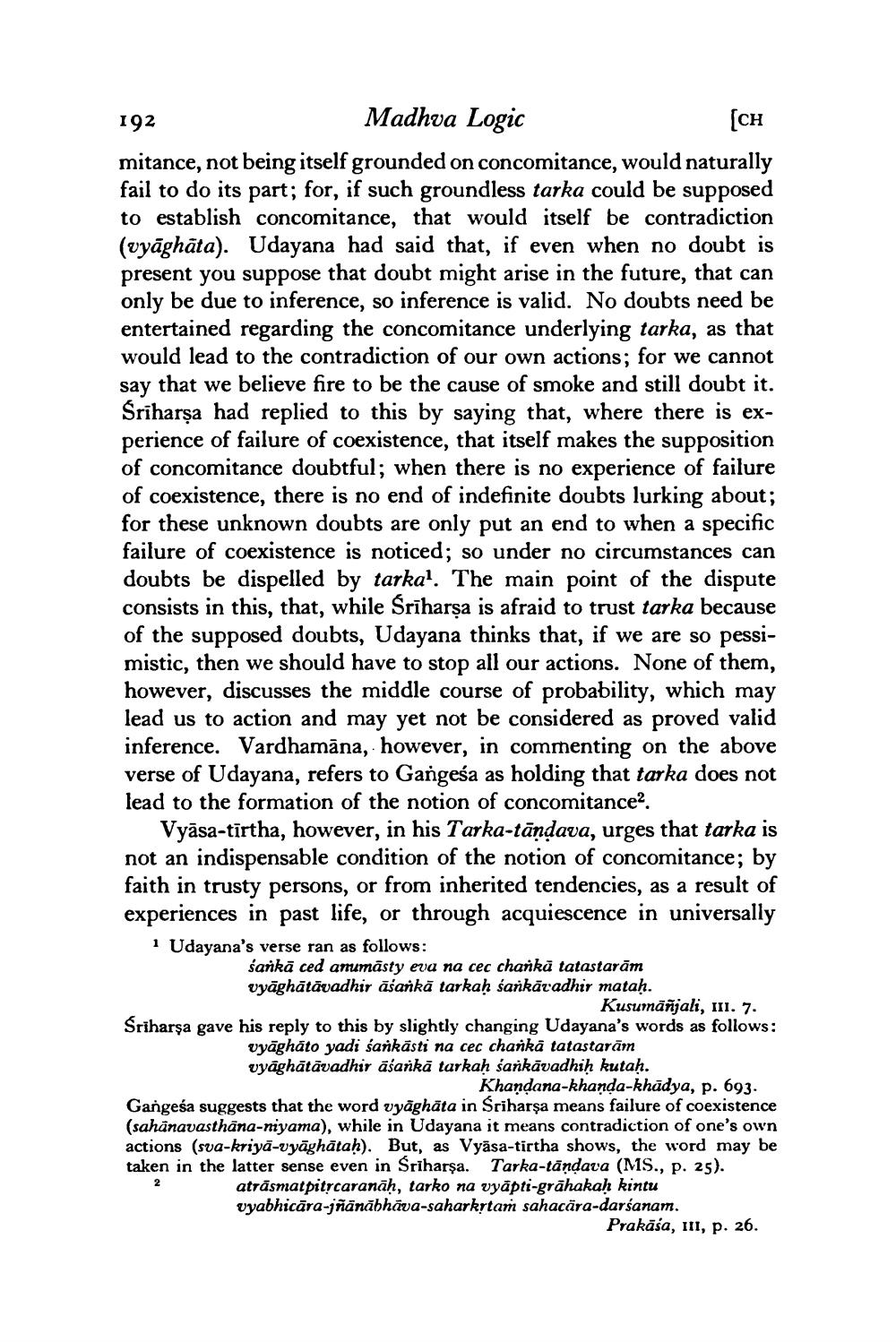________________
192
Madhva Logic
[сн mitance, not being itself grounded on concomitance, would naturally fail to do its part; for, if such groundless tarka could be supposed to establish concomitance, that would itself be contradiction (vyāghāta). Udayana had said that, if even when no doubt is present you suppose that doubt might arise in the future, that can only be due to inference, so inference is valid. No doubts need be entertained regarding the concomitance underlying tarka, as that would lead to the contradiction of our own actions; for we cannot say that we believe fire to be the cause of smoke and still doubt it. Sriharşa had replied to this by saying that, where there is experience of failure of coexistence, that itself makes the supposition of concomitance doubtful; when there is no experience of failure of coexistence, there is no end of indefinite doubts lurking about; for these unknown doubts are only put an end to when a specific failure of coexistence is noticed; so under no circumstances can doubts be dispelled by tarka'. The main point of the dispute consists in this, that, while Śrīharsa is afraid to trust tarka because of the supposed doubts, Udayana thinks that, if we are so pessimistic, then we should have to stop all our actions. None of them, however, discusses the middle course of probability, which may lead us to action and may yet not be considered as proved valid inference. Vardhamāna, however, in commenting on the above verse of Udayana, refers to Gangesa as holding that tarka does not lead to the formation of the notion of concomitance?
Vyāsa-tīrtha, however, in his Tarka-tāndava, urges that tarka is not an indispensable condition of the notion of concomitance; by faith in trusty persons, or from inherited tendencies, as a result of experiences in past life, or through acquiescence in universally Udayana's verse ran as follows:
śankā ced amumāsty eva na cec chankā tatastarām vyāghātāvadhir āśarkā tarkah sarkātadhir matah.
Kusumāñjali, 11. 7. Sriharsa gave his reply to this by slightly changing Udayana's words as follows:
vyāghāto yadi sankāsti na cec chankā tatastarām vyāghātāvadhir āśarkā tarkah sankāvadhiḥ kutah.
Khandana-khanda-khādya, p. 693. Gangesa suggests that the word vyāghāta in Sriharșa means failure of coexistence (sahānavasthāna-niyama), while in Udayana it means contradiction of one's own actions (sva-kriya-vyāghātah). But, as Vyāsa-tirtha shows, the word may be taken in the latter sense even in Sriharsa. Tarka-tandava (MS., p. 25).
aträsmatpitrcaranāḥ, tarko na vyāpti-grāhakah kintu vyabhicāra-jñānābhāva-saharkytam sahacara-darśanam.
Prakāśa, III, p. 26.




